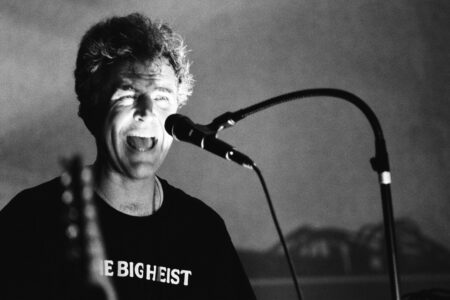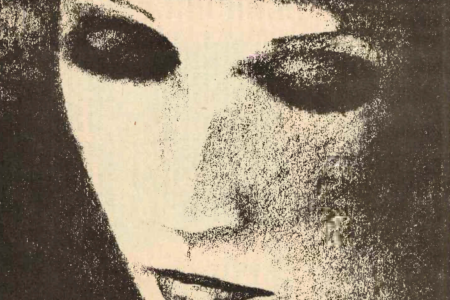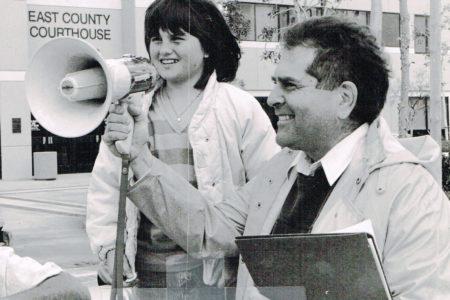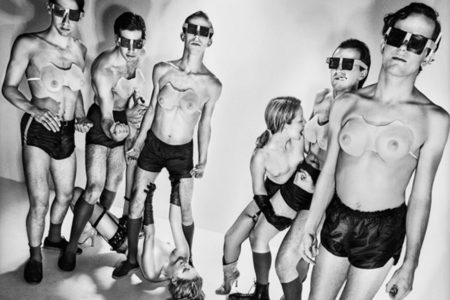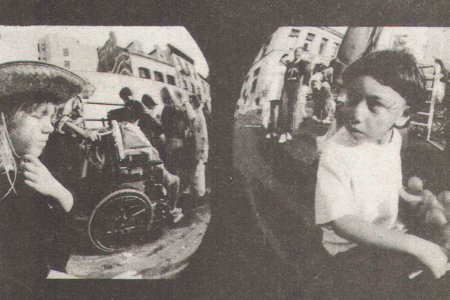 It is the 50th anniversary since the formation of Devo. I happen to be a de-evolution truther. Here are the uncomfortable truths you deserve to know:
It is the 50th anniversary since the formation of Devo. I happen to be a de-evolution truther. Here are the uncomfortable truths you deserve to know:
One: Devo are NOT a one-hit wonder. When I was in high school, I thought I was the coolest nerd in town because I got a Devo energy dome shirt through their mail order fan club. Within minutes of stepping into the halls, I was slammed into a locker by a blockhead about twice my height. “Oh, you like Devo, huh?” he barely intoned between gritted teeth, “Name their first five albums!”
The words got stuck in my throat. My inability to answer was a panic response, not a lack of understanding Devo discography. I understand his rage though. The public perception of Devo as the one-hit wonder band of “Whip It,” or the further devolved TV commercial version which commands the listener, “You must Swiffer,” is an affront to a band whose body of work spans albums, videos, visual art and an aesthetic ideology that has perverted the entire realm of underground art.
Two: Devo are NOT a band. Devo, like most great art, was born out of trauma. Founders Gerald Casale and Mark Mothersbaugh were present at the Kent State Massacre, where the National Guard fired upon a crowd of student protesters, killing four. Casale was friends with two of the victims. “It completely changed me from some kind of free love pot-smoking hippie into a very politicized person that had a new agenda and a new well-founded anger,” he said.
The tragedy gave them the ammo with which they would target American culture with explosive satire. After finding a self-published religious zine titled Jocko Homo Heavenbound by chance, they found their weapon: The theory of De-Evolution. The doctrine that mankind is not progressing toward a brighter future, but is instead degrading, moving backwards.
Devo was not a band, but rather an art interventionists staging situations, pranks and performances in the vein of Dada and Futurist agitprop. They had characters and plots dramatizing their fury at the mundanity of everyday life. The music was secondary to the subversive visuals, films, live shows and ideas. Their approach was DIY. They created all their own costumes, props, merch and pressed their records independently. They were called punks, but they rejected the label. Casale mused about punk bands of the era in a 1995 TV special, “there was nothing truly punky about them because they were looking back and taking all their ideas, about how they looked, the sound of the music, the progressions and the kind of anger, they were taking it from the 60s. We thought we were the true punks because we were hated by everybody. We were punk scientists.”
Three: Devo ARE a band. Devo’s first film predated MTV by five years. This film depicts Devo as janitors engaging in shady music-making activities in a dingy cellar. Bowie took a liking to the film and sent them to Brian Eno, who produced their first record. The rest, as they say, is Devo.
While it may seem strange for an avant-garde performance troupe to be accepted into the mainstream — they were signed to Warner Brothers for ape’s sake — this all happened before indie labels had much of a presence.
Four: Nothing Changed. Devo did not make the world more wiggly. The pop mafia turned their backs, as Devo was banned from MTV for supposedly obscene images, such as a french fry penetrating a donut in the video for “That’s Good.” Devo’s albums took a downturn in quality after 1982’s underrated Oh No! It’s Devo. The satire was still there but the fangs were removed. Casale said, “something’s always lost when any outside form of self expression becomes embraced and becomes established, but that’s the arc and that’s the journey that is so funny to Devo.”
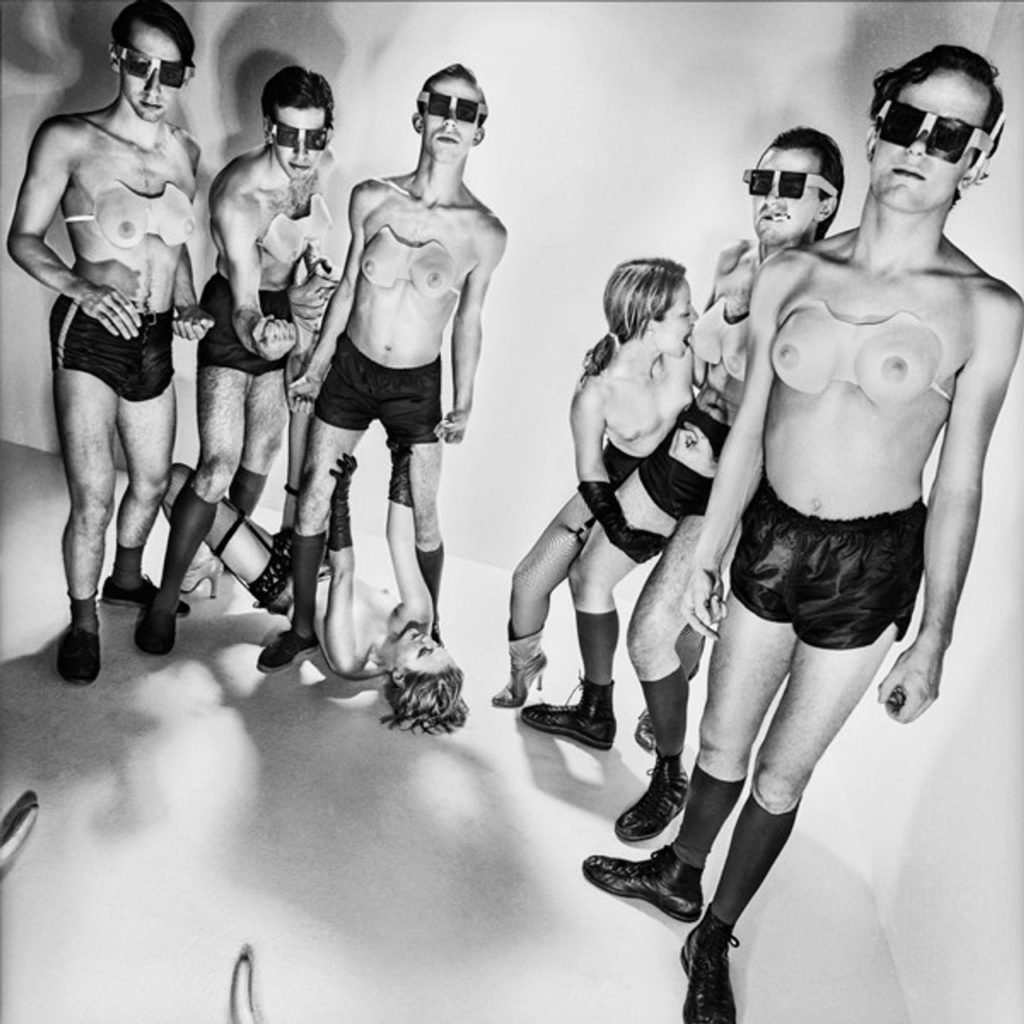 Five: Everything changed. Devo’s influence can be found across indie music, electronic, industrial, experimental, any subversive DIY band or performance project. It’s hard to imagine zine space-agers the Association of Autonomous Astronauts, hyperpop parody Poppy or sci-fi freakout movies like Liquid Sky, without the influence of Devo. There’s even a term for acts that hem close to Devo’s look and sound: Egg Punk.
Five: Everything changed. Devo’s influence can be found across indie music, electronic, industrial, experimental, any subversive DIY band or performance project. It’s hard to imagine zine space-agers the Association of Autonomous Astronauts, hyperpop parody Poppy or sci-fi freakout movies like Liquid Sky, without the influence of Devo. There’s even a term for acts that hem close to Devo’s look and sound: Egg Punk.
When I started my band Martian Crisis Unit, I wanted to perform music that used songs as vehicles for high-concept sci-fi dramatics, social satire and to turn the rock concert format into a psychomagical happening. Although I explored these ideas using my own signs and signifiers, Devo gave me the method and the blueprint to get my ideas across.
I surround myself with other Devo fanatics, like Paul Bellini of Kids in the Hall and queercore band Mouth Congress, which he formed with Scott Thompson in 1984. “[Devo] really provided a template for me in terms of how to create a mythos around a band,” Bellini told me. “They proved that a band could be part of something greater, a whole world on its own and not just the third band on a bill. I never wanted to copy their style or sound, but it gets its hooks in you and you write something that sounds like a Devo riff or lyric.”
Bellini reflected on how Devo is so good at galvanizing their fans. “They catered to their fans’ desire for unusual stuff in a very direct way,” he said, citing their unusual merch options and fan club membership as crucial for hooking devotees for life.One such devotee is founder of the art movement Neoism, Istvan Kantor, whose alter ego Monty Cantsin is an “open concept pop star,” an identity that anyone can take on, and make art under. Saying, “I am Monty Cantsin” is similar to saying, “We are all Devo.” He told me, “Devo, especially between 1978 and 1982, were totally inspiring Neoist circles in the West Coast as well as in Montreal. Devo’s version of ‘Satisfaction’ was among the songs I performed with my early band The Neoists, which included sci-fi writer John Shirly and Ju Suk Reet Meate from Smegma, another legendary band of the time. [We loved] Devo’s completely different attitude in pop culture as part of their engagement in new wave music/noise, especially because of their refusal of the past.”
Filmmaker and artist Sook-Yin Lee told me that, “the lineage of art rock mischief makers with hooks galore: Kraftwerk, The Residents, Nina Hagen, Devo and Negativland had a profound effect on my impressionable young mind. Like 20th Century Commedia dell’Arte by the way of Akron, Ohio, Devo, behind masked performances were serious satirists skewering societal stupidity and deconstructing rock and roll. It is no wonder Mark Mothersbaugh was a follower of J.R. ‘Bob’ Dobbs, founder of the parody religion Church of the SubGenius, with their battle cry to ‘destroy the Conspiracy of the Normals.’ But don’t repeat that, ever.”
Six: De-evolution is real! It’s all around. The best of us are potatoes, while the worst are angry apes trying to make the apocalypse imminent. If you want to understand the present moment, you have 50 years of Devo history to draw on. They explain our predicament perfectly. If Devo’s plan to replace themselves with robots pulls through, then we have many years of Devo ahead. If not, there is nothing to worry about, for we are all Devo!

